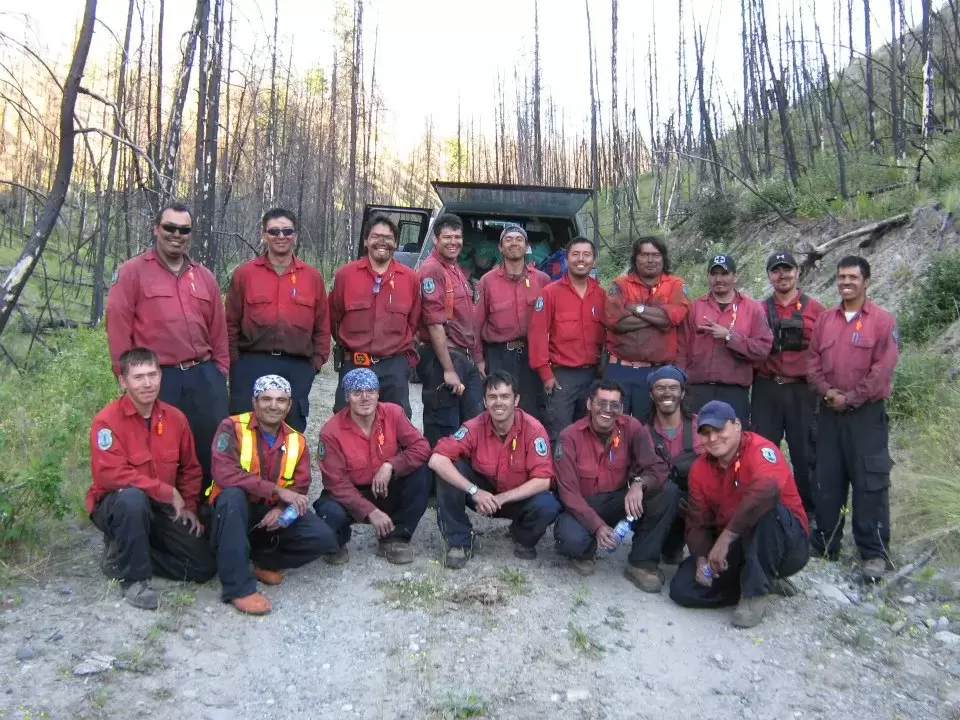Where there is fire, there is smoke along with other occupational hazards for firefighters.
That undeniable truth is recognized with amendments introduced in the B.C. legislature last week to level the playing field for the health and well-being of all firefighters, whether they’re going up a ladder or a mountain.
Once passed into law, the changes would allow wildfire fighters, fire investigators, as well as firefighters working for First Nations and other Indigenous organizations, to gain easier access to workers’ compensation and support services.
“These changes under the Workers Compensation Act are about fairness and support for firefighters regardless of where they work,” said B.C. Minister of Labour Harry Bains. “Whether battling wildfires, structural blazes in First Nations communities or investigating the causes of devastating fires, the work can have serious impacts on a person’s physical and mental health.”
Under the Workers Compensation Act, presumptive illnesses are health conditions acquired on the job. Rather than having to prove cause and effect, firefighters experiencing work-related health issues will be able to obtain supports and benefits under the compensation system.
Before 2018, presumptive conditions were limited in scope, covering specific cancers and heart diseases suffered by some groups of firefighters. Last spring, the province expanded presumptive conditions to include mental health disorders for police officers, paramedics, sheriffs and correctional officers, and most urban firefighters.
The proposed changes would expand presumptive illnesses to include cancer, heart disease and mental-health disorders as they affect wildfire and Indigenous firefighters, as well as fire investigators who deal with the aftermaths of often traumatic events.
“This is great news for firefighters who battle fires day in and day out, protecting communities around the province. It will provide them with easier access to supports they need for work-related physical and mental health injuries,” said Gord Ditchburn, president, B.C. Professional Fire Fighters Association.
B.C. Government Employees’ Union, which represents 1,400 seasonal wildfire firefighters, made submissions to government on the issue. While the occupational hazards of urban firefighters are well documented, the union found a lack of research and understanding of the risks associated with wildfire suppression.
“Our wildfire fighters are renowned across the country and around the world for doing a technically challenging and critically important job that involves regular and ongoing exposure to conditions that threaten their physical and mental health,” said Stephanie Smith, BCGEU president. “That’s why, ever since presumptions were expanded a year ago, we’ve been working hard to get wildfire fighters included in the coverage. These changes are excellent news for wildfire fighters who put their health and safety on the line to save lives and property, just like their urban counterparts do every day.”
In its report, the union describes as false a common belief that wood smoke is relatively harmless, listing carcinogenic compounds to which wildfire firefighters may be exposed. These workers “do not wear any respiratory protection or follow decontamination procedures … (and) face more exposures to more toxic smoke as population growth and the effects of climate change intensify,” the report states.
“The brave men and women who put their health on the line to save our communities deserve every support we can give them,” said Dr. Shannon McDonald, deputy chief medical officer of the First Nations Health Authority (FNHA). “Apart from the obvious physical dangers, smoke inhalation can cause significant long-term health problems.”
FNHA oversees delivery of First Nations health programs and services in B.C. with an emphasis on promoting health and preventing disease.







